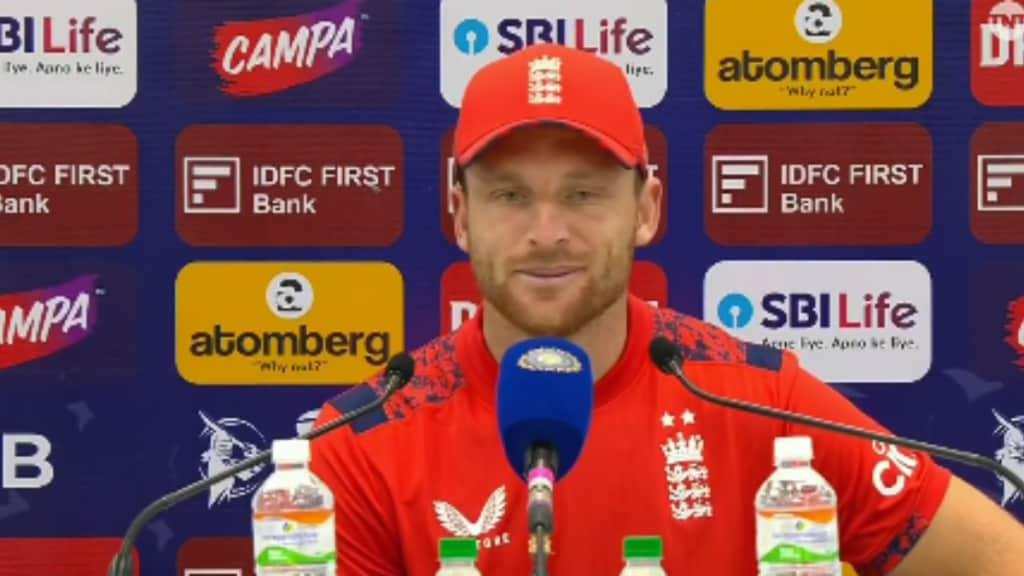England’s captain Jos Buttler expressed his displeasure over India’s use of fast bowler Harshit Rana as a like-for-like replacement for all-rounder Shivam Dube during the fourth T20I, which India won by 15 runs, taking an unassailable 3-1 lead in the five-match series.
Dube, who had scored a vital 53 off 34 balls, was struck on the helmet by a delivery from Jamie Overton in the penultimate ball of India’s innings. Following the blow, the concussion protocol was followed, but Dube faced the final ball of the innings. However, when India took the field to defend a target of 182 runs, Harshit Rana, not Dube, appeared on the field as the concussion substitute.
Rana replaced Dube as a like-for-like substitution under the concussion protocol, but the replacement raised eyebrows. While Dube bowls military medium pace, Rana, a tearaway fast bowler, is known for his aggressive pace. The move left Buttler and the England team perplexed, and Buttler made his views clear post-match.
“I don’t think it was a like-for-like replacement. We don’t agree with that,” Buttler said, with sarcasm evident in his tone. “Either Shivam Dube has added 25 miles per hour to his bowling or Harshit has really improved with his batting.” Buttler’s remarks seemed to question the legitimacy of the substitution, especially given that Dube’s role was primarily with the ball, while Rana is known for his speed as a bowler.
Despite the controversial substitution, Rana had an excellent match, picking up 3 wickets for 33 runs at crucial moments, which played a key role in India’s victory. However, Buttler maintained that even with Rana’s inclusion, England had their chances to win the match but ultimately failed to capitalize on them.
“We still had our chances to win, but yeah, we disagree with the decision,” Buttler stated. “I’d just like to get a bit of clarity on that.”
Buttler also revealed that the England team was not consulted on the decision to bring in Rana as a concussion substitute. “There’s no consultation. I was thinking, ‘Who’s Harshit on for?’ and then I was told he’s the concussion replacement, which I obviously disagreed with.”
India’s bowling coach Morne Morkel clarified that the team merely provided the name of the concussion replacement to the match referee, Javagal Srinath, and that the decision was out of India’s hands. “Harshit was having dinner when he got called in. He had to quickly get up and go out, and I thought he did an excellent job,” Morkel explained.
The issue of concussion substitutes and what constitutes a “like-for-like” replacement remains a grey area in cricket, one that India has cleverly utilized in previous instances. In the 2020-21 series against Australia, India used a concussion substitute when Ravindra Jadeja was replaced by Yuzvendra Chahal despite Jadeja’s issue being more related to his hamstring than a head injury.
Buttler, however, took the matter further by joking that he might ask if England could field 12 players for the fifth and final T20I in Mumbai, given the apparent advantage India gained from the substitution.
As the debate around concussion substitutes continues, the clarity on the rule remains uncertain, and Buttler has stated that England will seek further explanations from match referee Srinath in order to understand what qualifies as a like-for-like replacement in such situations.
With the series now at 3-1 in India’s favor, all eyes will be on the final T20I in Mumbai, where this controversy could provide an added talking point as the teams look to close out the series.


